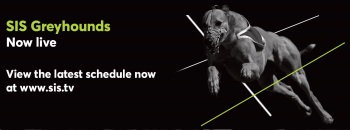1971 February 11 Greyhound Racing’s Freedom Bill is having its second reading in the House of Lords. Introduced by Lord Stonham last month as the Betting, Gaming And Lotteries (Amendment) Bill, it will give tracks an additional 26 race days, with a maximum of 13 meetings a month, ending the farce of race dates being fixed up to a year in advance.
1975 Gayline, who was rated one of the fastest pups at Dunmore, where he won four consecutive races, is an impressive winner of the Coursing Derby at Clonmel. Mary McGrath’s white and black was ante post favourite for the event and was ‘no odds’ to take the final. Gayline is Newdown Heather’s fifth Coursing Derby winner in seven years.
1963 A Ministry of Transport spokesman admits that plans to extend the M1 motorway will necessitate the closure of Hendon greyhound track.
1989 Walthamstow stage their first match race in 14 years when the track’s top staying stars Fort Leader and Exile Energy meet in a 640 metre dual. It goes to Ken Linzell’s Fort Leader whose 235 metre sectional is just three spots outside Farncombe Black’s track record. She then held on to win by two lengths. Interestingly, the win pool on the match race was 10% higher than the six-runner race that preceded it.
1959 Biscayne track in Florida launch the first twin-hare system. The second lure is attached to the traditional inside lure by a nine foot arm. The aim is to reduce crowding by encouraging more dogs to race in the centre of the track.
1973 Trainer Ron Saunders has runners in seven of the eight races on a Manchester White City graded card and wins the lot.
1957 Coolkill Chieftain (Celtic Chief-Coolkill Darkie, Jan 52) dies suddenly at Jack Harvey’s kennel. A holder of the West Ham 525 yard and Wimbledon 500 yard track records, his victories included the 1954 Laurels and Stewards Cup. He was withdrawn as a short priced favourite from the St Leger final with a gastric problem. The following year he won the Wood Lane and ran third in the English and Welsh Derbys. Although he was at stud very briefly, without him, there would have been no Super Rory or Skipping Chick to name but two.
1975 The NGRC disqualify an owner and his dog when he advertises Cnuga Champion as being at stud. In his advertisement, owner Patrick O’Shea claims the dog was a winner of the Yeovil Derby and Cesarewitch, both events being at a non-NGRC track.
1988 Independent Sunderland announce plans to hold a sellers race every fortnight.
1966 The NGRS refuse permission to the BBC’s Tomorrows World team who want show chromatography testing taking place. Instead the BBC show footage of an unknown laboratory with samples of urine apparently being tested. They also show some old race footage accompanied by a soundtrack which states: “It is believed that punters and bookmakers lose thousands of pounds each week on races in which greyhounds are doped”. In a separate commentary, the programme’s present states: “The dog that is discovered is only the tip of the iceberg. Only 14 of the big tracks have dope testing.”
1959 The first two home in a heat of the Orient Cup are returned at 10-1 and 25-1. The forecast pays £23 for a two shilling forecast bet – odds of 232-1.
1970 At more than 80lbs (36.3kg), Silver Ransom is reckoned to be the biggest bitch ever to contest a coursing Oaks.
1988 Pelaw Grange stage an unusual competition for St Patrick’s day. Only the dogs who finish third qualify for the final.
1959 Around 500 guests attend a major fund raising dinner in aid of two major press charities in a Leeds ballroom. During the evening six greyhounds are paraded in front of the diners with bids being taken for ‘one night ownership’. At midnight the six runners contest a trial at Leeds stadium. The winner then returns to the ballroom with a trophy to present to the lucky owner. All monies raised go to the charities.
1985 Brough Park stage their first ever graded marathon. After 916 metres all six runners are separated by less than three lengths.
1947 Racing continues despite very bad weather. At Wimbledon they change the hare colour to black so it will show up better against the snow.
1947 Captain W W Harrison is the latest breeder to give up his profession due to the ongoing issues with distemper. Based at Harrietsham in Kent, Harrision has lost 56 out of 70 puppies to the disease in the past 15 months alone. However, debate continues to rage among the veterinary profession about identifying and naming the specific disease with the word ‘distemper’ being generic for a wide variety of different ailments (the bubonic plague was once referred to as distemper). The Central Veterinary committee admits that there are a variety of names currently used to describe the disease with the symptoms of distemper. They include: ‘show fever’, ‘cat plague’, ‘influenenza’, and ‘kennel ill’ among many others.
1970 Brough Park star Shady Begonia (Pigalle Wonder-Castle Swan, May 66) is retired to stud. Trained by Norman Oliver, his victories included the TV Trophy, Recently, Cock of the North and Pride of the Midlands. The white and brindle also held the records for 550, 725 and 880 yards at his home track. Plans to send the dog to Ireland are thwarted with an eight month quarantine period currently in operation.
1988 Lone Gone, originally bought at Cradley Heath Sales, but then return for re-sale when he fails to live up to expectations, runs away with the Staffordshire Knot.
1953 Colonel Critchley, the GRA chairman announces that the company bred 320 pups the previous year. It is 17 years since the company “began an experiment” to breed greyhounds to supply their tracks. At present, 50 brood bitches are based at the company’s Longcross kennel in Surrey, and 30 at the Hook Kennels training establishment at Northaw in Hertfordshire. Roughly 200 pups are sent to be reared with farmers in Cumberland, 60 to Staffordshire and 25 to Westmoreland. At 12 months, the pups are sent to the company’s schooling track at Horley in Surrey. They are then distributed to the tracks. Critchley concedes that while he prefers dogs to be genuine to the McKee-Scott hare but not all greyhounds will chase “all-out” on that lure. Those that fail to show sufficient enthusiasm are sent to the company’s three tracks with inside Sumner hares: Manchester White City, Hall Green or New Cross. They are then sold on for sums between £80-£120 (index linked to roughly £1,800-£2,700), though the company retains the option to have them back for breeding at the end of their racing careers. In the last three months of 1952, some 68 young dogs joined kennels at the company’s nine stadia. Critchley concedes that there have been comparatively few champions produced by the company, the exceptions being Derby winner Greta Renee and the wartime ‘reserve Derby’ winner GR Archduke. Indeed ‘Critch’ concedes that company policy is deliberately aimed at producing a high percentage of genuine chasers to “suit the pocket of the average small owner” rather than looking for high quality. He also believes that it will be impossible to compete with the top Irish breeders since all the top sires are in Ireland (Mad Tanist, Bellas Prince, and, ironically, the British bred Bahs Choice) and the cost of sending broods to the top dogs is prohibitive. Although GRA own a small breeding kennel in Naas, the majority of the pups are reared in England. “Second reason, that in the formative stage a meat diet is essential in the rearing of superlative trackers, and it is impossible to produce this in this country. (Meat rationing has been a major issue during the past 15 years).

1947 Kent owner trainer Fred Trevellion announces that he has bought open racer Motts Regret who recently failed to reach his reserve at Aldridge’s sale, even though bids reached £1,250 guineas (roughly £52,350 today). He new owner admits that he was particularly keen to buy the dog, who began his career at GRA’s Northaw Kennel, because he is the fastest son of Trevellion’s former open racer Trevs Despatch. He decides against renaming the dog ‘Trevs Regret’ and settles for the name Trevs Perfection. Within the following year Perfection will become the first dog ever to win the Triple Crown, English, Scottish and Welsh Derbys.












